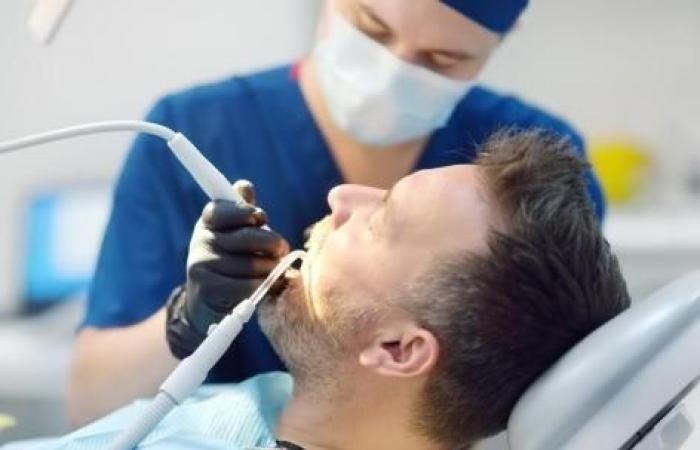THE ESSENTIAL
- Nearly 30% of the general population could be affected by tooth loss by 2030, according to the World Health Organization (WHO).
- Being toothless can be difficult to live with both physically and mentally.
- The High Authority for Health (HAS) has issued a favorable opinion on the reimbursement of implants and dental prostheses in the event of complete or single edentulism.
As a result of poor dental hygiene, decay or bone loss, partial or total edentulism can occur. This dental loss can have serious consequences, both physical (nutritional deficiencies) and mental (socialization problems, low self-esteem, etc.).
A progression of dental edentulism
In view of the increase in lifespan, the World Health Organization (WHO) estimates that approximately 30% of the world population will be affected by complete edentulism by 2030, despite the progression of campaigns oral and dental prevention.
Several therapeutic solutions offer tooth replacement, in particular implant-prosthetic management of edentulism. On the other hand, the installation of implants or dental prostheses is not reimbursed in the majority of cases. Requested by Health Insurance and the Ministry of Health, the High Authority for Health (HAS) “evaluated implant-prosthetic management in two types of edentulism: complete edentulism and single edentulism [une ou deux dents, ndlr]”with the aim of improving access to care.
Single or complete edentulism: a favorable opinion for reimbursement of “all required procedures”
In a press release published this Wednesday, November 6, the HAS declared that it was in favor of reimbursement, for the general population, of “all the actions required during the pre-therapeutic, therapeutic and post-therapeutic phases” in case of complete or single edentulism. This announcement concerns:
- single supra-implant fixed prostheses (PFUSI) for the treatment of single edentulism;
- complete removable implant-retained prostheses (PACIR) for the treatment of complete edentulism.
As part of comprehensive care for edentulism, the HAS has also delineated all the stages of the journey while mentioning the importance of providing patients with all the information concerning their care. “The HAS finally recalls the practitioner’s obligations in terms of information, informed consent from the patient, maintaining medical records and traceability of medical devices, particularly in implantology”we can read in the document.
Health






